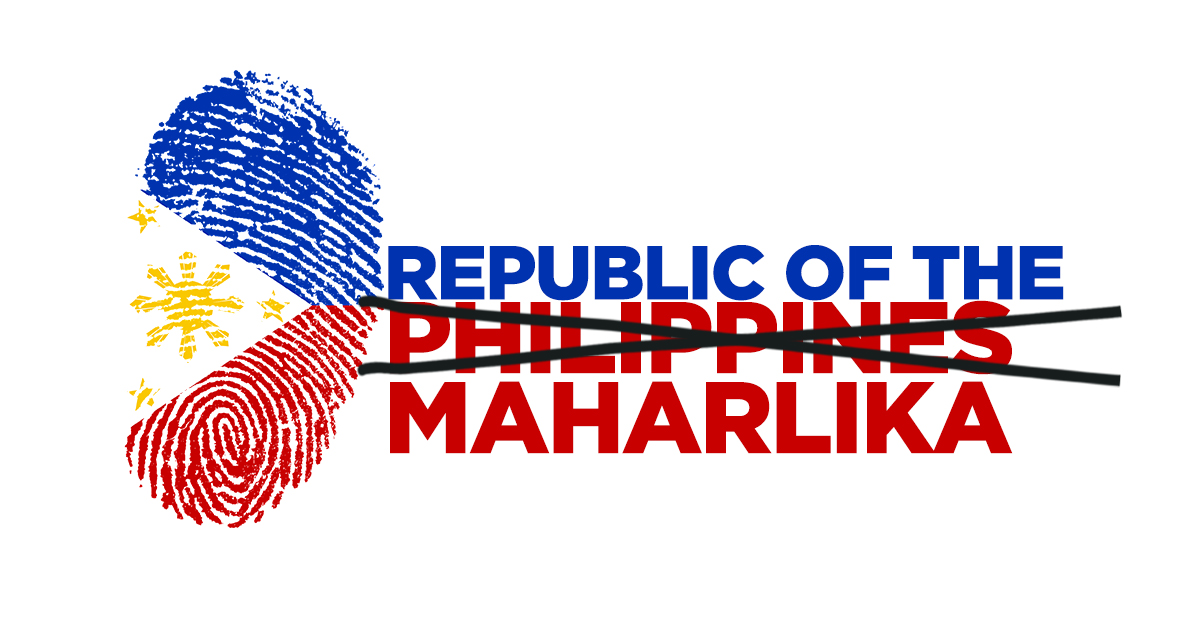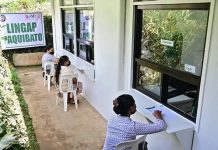From Philippines to Republic of Maharlika?

The word Maharlika may have a pretty good ring to it and an imprint on the country’s real identity as an Asian country, but a staunch advocate of Federalism believes it does not make any difference now.
All the fuss about the name change which dated back from the Marcos era was revived after President Duterte’s speaking engagement in Maguindanao where he said that former President Ferdinand Marcos was right about changing the country’s name during his administration.
“During Marcos’ time, he was right. He wanted to change it to Maharlika. The Republic of Maharlika, because Maharlika is a Malay word and it means more of a concept of serenity and peace,” Duterte said in Filipino.
Rotary Club Davao (RCD) president Ed Bullecer, an outspoken advocate of the government’s campaign towards shifting to federalism, said that the current name of the country is colonially borrowed. He traced the origin to the Spanish colonizers naming the country as Philippines in honor of King Philip of Spain when they set foot in 1521.
However, Bullecer thinks that changing of the name today may not be ideal since the Spanish invasion has already contributed to the current identity of the Filipinos.
He clarified, nevertheless, that the idea of renaming the country was officially proposed by then Batasang Pambansa member Eddie Ilarde who filed Parliamentary Bill 195 which sought to change the name of the country from “Philippines” to “Maharlika” in 1978.
Mindanao Development Authority (MinDA) public relations head Adrian Tamayo, for his part, thinks that the President is seeking for a reform from being a puppet from other countries and renaming the country is a symbolism.
“What the President triggered is an understanding that the name used as a reference to our nation should also come from the historical context that it is not our real identity, since we were colonized. What the President is pointing out that changing a name would create a new spirit, that there is a need for reform,” Tamayo said.
From the viewpoint of economics, Tamayo said, changing the name will not automatically eliminate the country’s issues such as poverty and corruption.
“What the President triggered was the psychological aspect. Change would still come from oneself. But it is good to trigger the opinion of the public to stir a discussion,” Tamayo said.
Davao City Councilor Diosdado Mahipus believes that the shift towards Maharlika “will not happen during our lifetime”.
“In the court of public opinion, many would object it because the name ‘Filipino’ is very sentimental,” Mahipus said.
A law practitioner himself, Mahipus said that renaming our country would be possible, through a Constitutional Convention or a Constituent Assembly in Congress.
However, he said that the need for changing the country’s name should be justifiable, same as changing someone’s name or surname.
Mahipus said the final stage would be the plebiscite, wherein the Filipinos will have the final say.
History professor Brian Caintic, meanwhile, said that he is neutral to the proposal.
Caintic said that the president’s pronouncement of “moving away from the influence of Westerns” is his prerogative. However, he said that the move will affect the constitution and other important documents.
“It’s a non-bearing to the economy. Maybe it would be more costly since some lawmakers would take advantage of the funds to be used for this move,” Caintic said.






